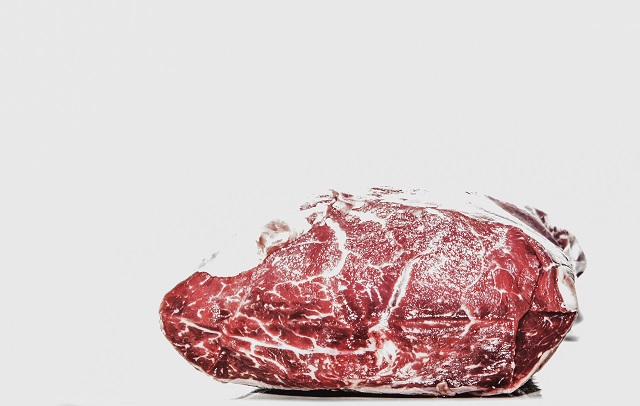Posted: Jan 18, 2023

Ever since founding Beyond Meat Inc. in 2009 with the then fantastical idea of making meat without animals, Ethan Brown has been giving the equivalent of one extremely long TED Talk. In 2013 he took the stage at the Wired Business conference, explaining that the world had a very real greenhouse gas-emitting meat problem and that venture capitalists could make a bigger impact investing in fake meat than in solar energy. At Toronto’s annual Ideacity gathering three years later, he said his goal was to replicate the “blueprint of meat.” By the time he appeared at Goldman Sachs Group Inc.’s Builders & Innovators Summit 2019, he explained that his mission demanded the urgency and scale the US mustered for World War II and that his products would simultaneously help solve heart disease, diabetes, cancer, climate change, natural resource depletion and animal welfare. Just like technology had rendered the horse-drawn carriage obsolete, he told the crowd at the New York Times’ climate conference this past fall, so, too, would his system of breaking down plants transform the protein at the center of the plate. “This,” he said, “is something that I feel is inevitable.”
Silicon Valley didn’t need much convincing that a better veggie burger could become the next world-changing disruption. Whereas the quinoa-and-bean patties of yore were for the crunchy set, Brown’s beef facsimile, concocted in a lab to look and taste like the real thing, meant the vast majority of meat eaters could give up their burgers without having to give up anything at all. Along with the venture capitalists came investors from every corner of culture—Leonardo DiCaprio, the Humane Society of the United States and former McDonald’s Corp. Chief Executive Officer Don Thompson. Even Tyson Foods Inc., the biggest maker of real meat in the US, invested and then invested again, catapulting the young El Segundo, California-based startup to a $1.3 billion valuation by 2018.
Bill Gates wanted in, too, backing not one but two companies with veggie burgers that “bleed” like real beef—Beyond, as well as its rival Impossible Foods Inc. Brown had licensed someone else’s process, but Impossible was the brainchild of a Stanford University biochemist named Pat Brown (no relation to Ethan). When Pat founded Impossible in 2011, his big breakthrough was realizing that a molecule called heme was the key to meat’s meatiness. He made heme with genetically modified yeast and patented the use of what the company called its magic ingredient: soy leghemoglobin.
Before Impossible had sold even a single burger, the company managed to raise $183 million. Pat also worked the circuit, including an actual TED Talk (technically, it was TEDMed) in 2015. Speaking in slightly more apocalyptic terms than Ethan, Pat referred to the “ongoing wildlife holocaust” caused by the world’s insatiable demand for meat, while an assistant sizzled an Impossible Burger onstage beside him. “I know it sounds insane to replace a deeply entrenched, trillion-dollar-a-year global industry,” he said, “but it has to be done.” Four years later, when the New Yorker profiled Impossible, Pat predicted his company would “take a double-digit portion of the beef market” by 2024 before sending it into a “death spiral.” Next he would target “the pork industry and the chicken industry and say, ‘You’re next!’ and they’ll go bankrupt even faster.”
But Big Meat is still alive and well. After Beyond went public in 2019—at the time the most successful major initial public offering since the 2008 financial crisis—competitors rushed into the space, followed by a categorywide pandemic surge. Since then the industry has plunged. Supermarket sales of refrigerated plant-based meat plummeted 14% by volume for the 52 weeks ended Dec. 4, according to retail data company IRI. Orders of plant-based burgers at restaurants and other food-service outlets for the 12 months ended in November were down 9% from three years earlier, according to market researcher NPD Group.
By Deena Shanker
Source: bloomberg.com
Date: January 18, 2023
Go-Wine's mission is to organize food and beverage information and make it universally accessible and beneficial. These are the benefits of sharing your article in Go-Wine.com